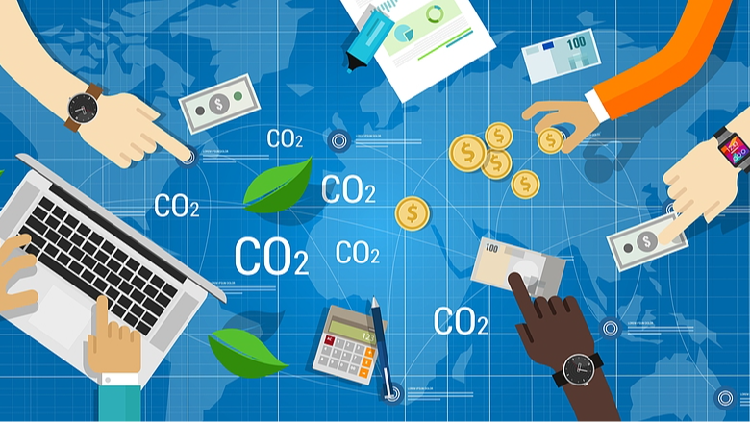COP29 nations approve framework for worldwide carbon market
Countries at COP29 have shown their support for a framework aimed at establishing a global carbon market.

This approval was one of the first agreements reached on the opening day of the UN Climate Change Conference in Baku, Azerbaijan. In addition to this, governments are expected to work on a climate finance agreement.
According to one negotiator, this agreement could facilitate the establishment of a UN-backed global carbon market, which has been in development for several years, potentially launching as early as next year.
Carbon credits theoretically enable countries or companies to invest in projects aimed at reducing CO2 emissions or removing them from the atmosphere anywhere in the world and utilize the credits generated to offset their own emissions.
Potential project examples include the cultivation of CO2-absorbing mangroves or the distribution of clean stoves to replace more polluting cooking methods in impoverished rural communities.
U.S. President-elect Donald Trump has indicated that he would withdraw the U.S. from the global Paris climate agreement, which forms the foundation for the proposed UN-backed carbon market.
Nonetheless, Juan Carlos Arredondo Brun, a former climate negotiator for Mexico currently with the carbon market data and sourcing company Abatable, remarked that the endorsement "will bring us closer to operationalizing the carbon market before any single party may decide to move away from the Paris Agreement."
This market could provide a pathway for U.S. companies to remain engaged in global climate efforts, even if Trump follows through with quitting the Paris accord. In such a scenario, U.S. firms could still purchase credits from the UN-backed market to achieve their voluntary climate targets.
While the standards approved in Baku aim to address worries that many initiatives do not deliver the promised climate benefits, advocates have claimed that they fall short in protecting the human rights of communities impacted by these projects.
"A lot of funders are worried that the markets aren't stable enough, credible enough to be able to invest more in," said Rebecca Iwerks, co-director at the non-profit group Namati. "It could actually hinder the development of the market if you don't have a strong standard."
Some negotiators also expressed dissatisfaction with the process leading to the agreement. The standards were established by a small group of technical experts, and some countries asserted that they were not given an adequate opportunity to weigh in on the final rules.
Kevin Conrad, executive director of the Coalition for Rainforest Nations and a former climate envoy for Papua New Guinea, stated that the supervisory board had exceeded its authority.
"We endorse what they have done, not the way they have done it," he said.
At COP29, countries will also aim to finalize additional regulations designed to foster a robust market.
The International Emissions Trading Association, a business organization that supports global carbon markets, has projected that total trading in the UN-backed market could generate $250 billion annually by 2030 and reduce carbon emissions by 5 billion metric tons each year.
Ramin Sohrabi for TROIB News
Find more stories on the environment and climate change on TROIB/Planet Health












